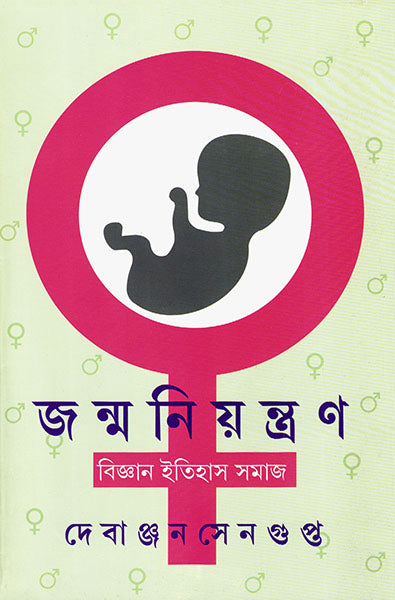Janma Niyantran
Janma Niyantran is backordered and will ship as soon as it is back in stock.
Couldn't load pickup availability
Genuine Products Guarantee
Genuine Products Guarantee
We guarantee 100% genuine products, and if proven otherwise, we will compensate you with 10 times the product's cost.
Delivery and Shipping
Delivery and Shipping
Products are generally ready for dispatch within 1 day and typically reach you in 3 to 5 days.
- Author: Debanjan Sengupta
- Publisher: Ananda Publishers
- Language: Bengali
- ISBN: 9789350406687
- Pages: 184
- Format: Hardcover
Description
Janma Niyantran by Debanjan Sengupta is a deep and candid exploration of the complex topic of birth control. This book presents a rich, multifaceted discussion that weaves together history, science, economics, literature, personal experiences, and feminism to offer a comprehensive understanding of this sensitive issue.
-
Exploring Birth Control Methods:
The book introduces readers to various contraceptive methods, providing a thorough discussion of their benefits and challenges. It highlights the physical, emotional, and social implications of birth control and explores how these methods are intertwined with individual and societal choices. -
Historical and Scientific Context:
Sengupta blends scientific facts about human reproduction with historical narratives, giving readers a deeper understanding of how birth control practices have evolved over time. He delves into the physiology of reproduction, the development of contraceptive technologies, and their impact on society. -
Social and Economic Perspectives:
The book also touches on the economic aspects of family planning and the social debates surrounding population control. It examines how birth control intersects with issues of poverty, gender, and social inequality, drawing attention to the often neglected perspectives of marginalized communities. -
Personal Narratives and Feminism:
Through the lens of personal experiences and narratives, the author explores the intersection of birth control with feminist thought. The book discusses how reproductive rights are linked to women’s empowerment and autonomy, offering a fresh perspective on the topic. -
Global Movement and Local Insights:
Janma Niyantran also discusses the global birth control movement and offers a critical analysis of India’s family planning policies. Sengupta reflects on the successes and challenges faced by the country’s initiatives and examines the role of local activism in advocating for reproductive health.
This book is not just about the science of contraception, but also about the cultural, political, and social dimensions that shape how birth control is perceived and practiced. With its engaging narrative, Janma Niyantran is a must-read for those interested in public health, reproductive rights, and social progress.





